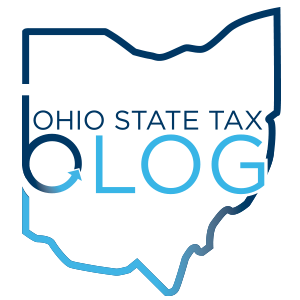Future of Sales Tax Nexus Unclear as South Dakota v. Wayfair Awaits Supreme Court Decision
In 1992, the Supreme Court held in Quill Corp. v. North Dakota that a state cannot require an out-of-state retailer (remote seller) to collect sales or use tax unless the retailer has an in-state physical presence. However, this decision was decided before the rapid rise in e-commerce which now accounts for hundreds of billions of dollars in annual sales. States complain they are losing out on tax revenue because they cannot collect taxes from online retailers who lack a physical presence in the taxing state. As a result, some states, including Ohio, have enacted “economic nexus” legislation directly contradicting Quill’s holding.
South Dakota passed a law for the sole purpose of provoking a challenge to overturn the Quill decision; it stated that entities with more than $100,000 annual sales or 200 separate transactions in South Dakota were deemed to have sales tax nexus. The South Dakota law included an expedited appeal mechanism, resulting in the first case challenging Quill to be brought before the U.S. Supreme Court in South Dakota v. Wayfair.
In Wayfair, the United States were one of many parties to file an amicus brief in favor of South Dakota’s statute. The United States’ brief asserts that Quill should be interpreted narrowly only applying to sales by mail order retailer who only presence is through the U.S. mail or common carrier, but not online retailers, contrary to how courts have applied it nationwide. Many believe that, by accepting the case, the Court will overrule Quill, but the same was true back in 1992 when Quill upheld the bright-line physical presence standard established from an earlier case. Oral arguments in Wayfair are scheduled for April 17, 2018, with a decision expected this summer.
Stakeholders are pressing Congress to act before the Court to mitigate chaos and confusion in the wake of an overturned or limited Quill ruling. A few potential options have been introduced including the Marketplace Fairness Act of 2017, Remote Transactions Parity Act of 2017, and a draft bill known as the Online Sales Simplification Act, which require retailers to collect tax based upon the origin of the sale and pay the tax into a clearinghouse. Nonetheless, it appears unlikely Congress will act, as Congress has failed to address sales tax collection in the 26 years since Quill despite the Court’s invitation to do so.
Without Congressional action, remote sellers could become subject to thousands of separate state and local tax regimes as states expand their taxing authority and look to reclaim lost revenue. Pre-emptive Congressional action would help create predictability and uniformity that will reduce business’ cost of compliance and allow states to effectively collect rightfully owed sales and use taxes.
If you have questions about how these developments affect your business, or have questions or concerns about Ohio sales tax nexus, please contact a member of our SALT team.
